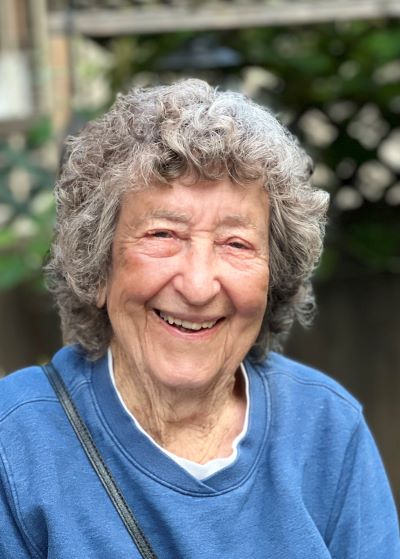We believe it is vital for Seniors and Dependent Adults to have a document with you at all times so you are informed and feel safe and protected. This document is a careful combination of rights found in several resources, in consultation with counselors, and from reflecting on our own experiences.
CAREGIVERS, COUNSELORS, MEDICAL PERSONELL, and SOCIAL WORKERS are bound by law and medical ethics to ensure that you are informed of your rights and that your rights are honored in every circumstance. They must report any evidence or complaint of abuse to proper authorities. Items 1-17 are REQUIRED of your caregivers.
Please print it, study it, and mark the items that concern you. You can use it as is, or alter it to suit your needs. Keep a copy with you and share copies with your family and friends.
This information represents the personal opinion of Elna and her daughter, Marietta. It is not a substitute for your consulting of your lawyer, counselor, elder, friends, or family. Use at your own risk.
1. I have the right to be treated not as a child but as an adult with respect and dignity. I have the same rights as other adults and to use those rights free of interference, coercion, discrimination, reprisal, and punishment.
2. I have the right to live free from fear, mistreatment, and abuse, to live knowing I am cared for and about, and to feel I am a valid, worthy, and loved adult.
3. I have the right to dignity and respect, to make independent choices and decisions about personal affairs, care, benefits, and service, to be free from abuse, neglect, and exploitation, and to be in control of my future.
4. I have the right to designate one or more guardians, representatives, or spokespersons (GRS) over all my personal affairs and for my GRS to be treated with the same authority, dignity and respect due me.
5. I have the right to be free from physical, emotional, sexual, and financial abuse and from neglect and abandonment.
6. I have the right to communicate and complain about treatment, care, or services and to have care-related needs dealt with in a sensitive manner.
7. I have the right to privacy in medical treatment, written communications, telephone conversations, meetings with family, access to resident councils, mail, and my body and my personal space.
8. I have the right to be treated fairly and with honesty, to be told the whole truth in all things, to be a participant in all conversations regarding my care and well-being.
9. I have the right to manage my financial affairs and to authorize another person to do so in writing.
10. I have the right to access and confidentiality of records. Records may not be released without my permission.
11. I have the right to receive good and valid information in a manner appropriate to me, to choose treatment regarding medical conditions and care, to be fully informed, to choose my physician, to participate in planning of my care, and to refuse medical treatment.
12. I have the right to keep my possessions, clothing, and furnishings; and to keep and manage my real, personal, and financial property and assets.
13. I have the right to refuse to perform services.
14. I have the right to information about benefits and to have services offered that will help maintain independence.
15. I have the right to have opportunities to use my skills and knowledge in my community, and to have and use the support of my community.
16. I have the right to make legal decisions and documents.
17. I have the right to participate in activities.
18. I have the right to share in the lives of my descendants, to be comfortable and safe with them, and to experience joy.
19. I have the right to share friendships, to choose my friends, to define my family, to decide who visits with me, and who talks with my GRS or me.
20. I have the right to speak my truth without constraint, impediment, or pushback and for my truth to be heard and accepted.
21. I have the right to converse at my own pace and comfort given that my brain activity may be slowing down. I have the right not to be talked over, interrupted, or to be under duress. If I show signs of stress, the interaction must cease immediately and I must be returned to my safe space or safe person.
22. I have the right not to socialize with or be in the presence of anyone who has abused or mistreated me or who makes me uncomfortable.
23. I have the right to express myself in the way that is best for me, whether by conversation, writing, social media, recording, video, or through my GRS; and to feel safe in expressing myself because others are patient, kind, and encouraging.
24. I have the right not to be the subject of gossip and backbiting, and not to be subjected to gaslighting.
25. I have the right to my faith, religion, or spirituality and not to have religion or religious views assigned to me or affecting me that are not my own.
26. I have the right to my social and political views and not to have views assigned to me that are not my own.
27. I have the right to be safe from communicable diseases and the best and most effective practices be used to prevent me from becoming ill. If I'm in any medical facility, I want:
* all hospital visitors/medical staff to be masked,
* a medical grade room air purifier in my room, and
* a hepa 13 or N95 respirator on me with visitors and as much as possible with medical staff.
Types of Abuse
28. Physical abuse is causing bodily harm by hitting, slapping, pushing, or restraining with ties or locks.
29. Emotional abuse is saying hurtful words, yelling, threatening, ignoring me, keeping me from seeing close friends and relatives, or making me associate with anyone who has abused me. Emotional abuse is also trying to gain guardianship or control over my assets or me through legal means, that would result in my loss of some or all of my rights.
30. Neglect is not responding to my needs; physical, emotional, social needs, or withholding foods, medications, or access to health care. Neglect includes planning for me without the consent, inclusion, and acceptance of my GRS and me. Neglect includes ignoring, disrespecting, or otherwise dismissing my GRS.
31. Abandonment is leaving me alone without planning for my care or ensuring that care is meeting my needs.
32. Sexual abuse is forcing me to watch or be part of sexual acts.
33. Financial abuse is money or belongings stolen from me, forging checks, taking benefits, using bank/credit card without permission and includes changing names on will, bank account, life insurance, deed, or title without my permission.
I ask that authorities be notified if I show signs of abuse
34. If I stop taking part in activities I enjoy,
35. If I look messy with unwashed hair or dirty clothes,
36. If I have trouble sleeping,
37. If I lose weight for no reason,
38. If I become withdrawn, agitated, or violent,
39. If I display signs of trauma, like rocking back and forth,
40. If I have unexplained bruises, burns, cuts, or scars,
41. If I have broken eyeglasses/frames, or physical signs of punishment or being restrained,
42. If I develop bed sores or other preventable conditions,
43. If I lack medical aids (glasses, walker, dentures, hearing aid, medications),
44. If I have an eviction notice for unpaid rent, notice of late mortgage, or home eviction,
45. If I have hazardous, unsafe, or unclean living conditions,
46. If I display signs of insufficient care of unpaid bills despite adequate financial resources, and/or
47. If I change my personality or behavior around different people.
Long term Effects of Abuse
48. I understand that most physical wounds heal in time. But elder abuse can lead to early death, harm to physical and psychological health, destroy social and family ties, cause devastating financial loss, and more.
49. I understand that any type of mistreatment can leave me feeling fearful and depressed. Sometimes, I may think the abuse is my fault. Adult protective service agencies can suggest support groups and counseling that can help me heal the emotional wounds.
How to Help Me
50. Elder abuse will not stop on its own. Someone else needs to step in and help. I may be too ashamed to report mistreatment. Or, I may be too afraid to make a report because it will get back to the abuser and make the situation worse.
51. If you think I am being abused physically, emotionally, or financially talk with me when we are alone. You could say you think something is wrong and you're worried. Offer to take me to get help, for instance, at a local adult protective services agency.
52. There are many local, state, and national social service agencies can help with emotional, legal, and financial abuse. Help me contact them.
Sources (and resources):
*Personal experiences and guidance from social workers and therapists.
©2023-2024 The Elna Adams Jeanes Trust - All Rights Reserved

